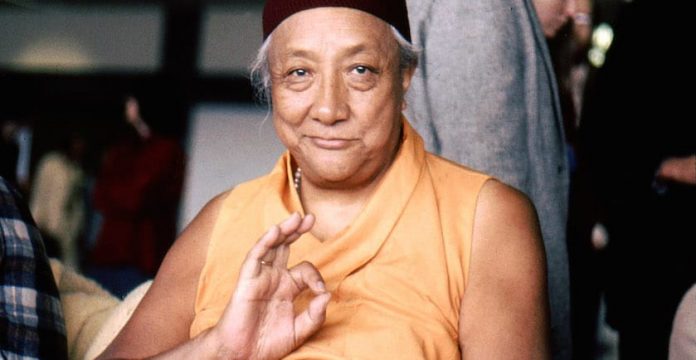
Sam Harris, noted author, philosopher, and neuroscientist joined Andrea Donsky and Lisa Davis on Naturally Savvy Radio to discuss what science can learn about the human mind from Eastern spiritual practices and how this can influence how we move through our daily lives. [The following transcript has been edited for print.]
Listen to the full radio interview here.
Naturally Savvy: Sam Harris is the author of several best-selling books and today we are talking about his latest, Waking Up: A Guide to Spirituality Without Religion . Why don’t you tell us a little bit about yourself, and then we will delve right into this fantastic book of yours.
Sam Harris: I am a philosopher and neuroscientist by background. I have a PhD in neuroscience, but my interest in the brain has really been philosophical from the start, and I really do more work as a 'philosopher of mind'. I am interested in how our growing understanding of the human mind, especially at the level of the brain, will change our conception of ourselves as subjective creatures and change our sense of what the good life entails – and the kinds of public institutions we create and the public policies we create.
There is a way in which science and our growing, rational understanding of ourselves can’t help but alter our sense of ethics and morality. I think that is a very interesting frontier and a necessary frontier of conversation. This book is my effort to understand spiritual experience, specifically experiences like self-transcendence and other very desirable states of mind (like unconditional love), in the context of a 21st century discussion of the human mind.
NS: You write, "we spend our lives lost in thought". What should we make of this fact? In the West, the answer has been 'not much'. In the East, especially in the contemplative traditions like those of Buddhism, being distracted by thought is understood to be the very wellspring of human suffering. As a Western scientist, how did your interest in the contemplative traditions take shape, and why do you think the West hasn’t seemed to offer much insight into the nature of our minds as the East?
SH: It is a very interesting question, and on one level it might just be an accident of culture. Insights of various kinds are not equally strewn across the globe. Science did not arise in the East the same way that it has in the West, and when you talk about something like 'Western medicine', you are really talking about 'medicine' in its entirety. Eastern medicine, insofar as it works, it has to conform to the principles of biology as we have come to understand them in the West (for example, theories of Ayurveda and Chinese medicine don’t really map onto biology as we have come to know it very well). But when talking about medicine – if you have cancer, if you have an appendicitis – the answer to that is largely, if not entirely, a matter of what Western medicine now says about it. I am not ignoring all of the problems and blind spots we have in Western medicine. Obviously, it's very crude by the standards of a hundred years from now, but still, in almost every respect it is the best we have got.
You find another asymmetry between cultures in terms of contemplative spiritual practices (a very rigorous approach to introspection). You find that the East has a very sophisticated set of methodologies and a vast literature on the topic of introspection that really has no analogue in the West. It certainly doesn’t have an analogue in the Western philosophical and scientific tradition. Introspection, is more or less of a dead end in the West. One hundred and fifty years ago you had people in psychology trying it, but more or less it teetered out at the time of William James. Why that’s the case I am not sure. I think it has something to do with the faith-based conception of Western religion. The Abrahamic traditions of Judaism, Christianity, and Islam, they are in principle dualistic, and in principle they start with this notion that we all have souls that really exist, that are really in relationship to a god who we must pray to and hope sends us to heaven as opposed to hell. In terms of introspection, that’s a bit of a dead end.
Read more about thought patterns that keep you from happiness
What you have in a tradition like Buddhism is a very different conception of the human mind which has facilitated an empirical rigor around the contemplative life that is very well-designed for export to a scientific conversation at this point. You can practice a Buddhist style of meditation like mindfulness without taking on any of the beliefs of the religion of Buddhism. You don’t have to believe in karma and rebirth and anything else that may seem entirely spooky and unfounded in that tradition. You can’t say that about prayers to Jesus, or beliefs that the Qur'an is the perfect word of the creator of the universe. You can’t take the practices of the Abrahamic traditions into the lab in quite the same way because they presuppose the truth of many highly suspect claims, for instance that Jesus still exists and is there to be prayed to. That is not something that a practice like mindfulness requires. I think it is just an accident that on some level, the East has a specific kind of wisdom that is easy to incorporate into a secular and scientific context at this point.
NS: How does the Buddhist practice of Dzogchen inform our daily lives?
SH: We spend our time lost in thought, and most of this thinking is painful. We are worrying about the future, we are rehearsing painful episodes from the past, and we are viewing the present moment through this scrim of language and discursivity and concepts that keeps us from actually connecting with a form of well-being that we can discover in the very nature of our conscious mind and the present moment. We are always hoping to find a good enough reason to just 'be happy now' but we are basically unable to be truly happy now because we are so distracted by this automaticity of thought.
Read more about meditation as the foundation for good health
Meditation, Dzogchen or otherwise, is the technique for bringing the mind into the present and breaking the spell of this conversation we are having with ourselves so that we can discover a basis for well-being which is not contingent upon good things happening in the future. It is not to say we don’t want good things to happen in the future (and meditation is compatible with all kinds of efforts to improve your life and improve your relationships), but it is a way of finding well-being before anything good happens. That’s almost a superpower in terms of operating in the world because if you are already happy, you are free to do wise and useful things as opposed to feeling desperate to be satisfied by the next moment of experience.
If you want to learn more about Sam Harris, visit his website at samharris.org and follow him on Twitter @SamHarrisOrg.
Listen to the full radio interview here.
Image via Wonderlane




